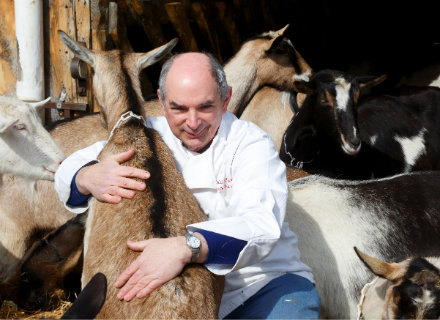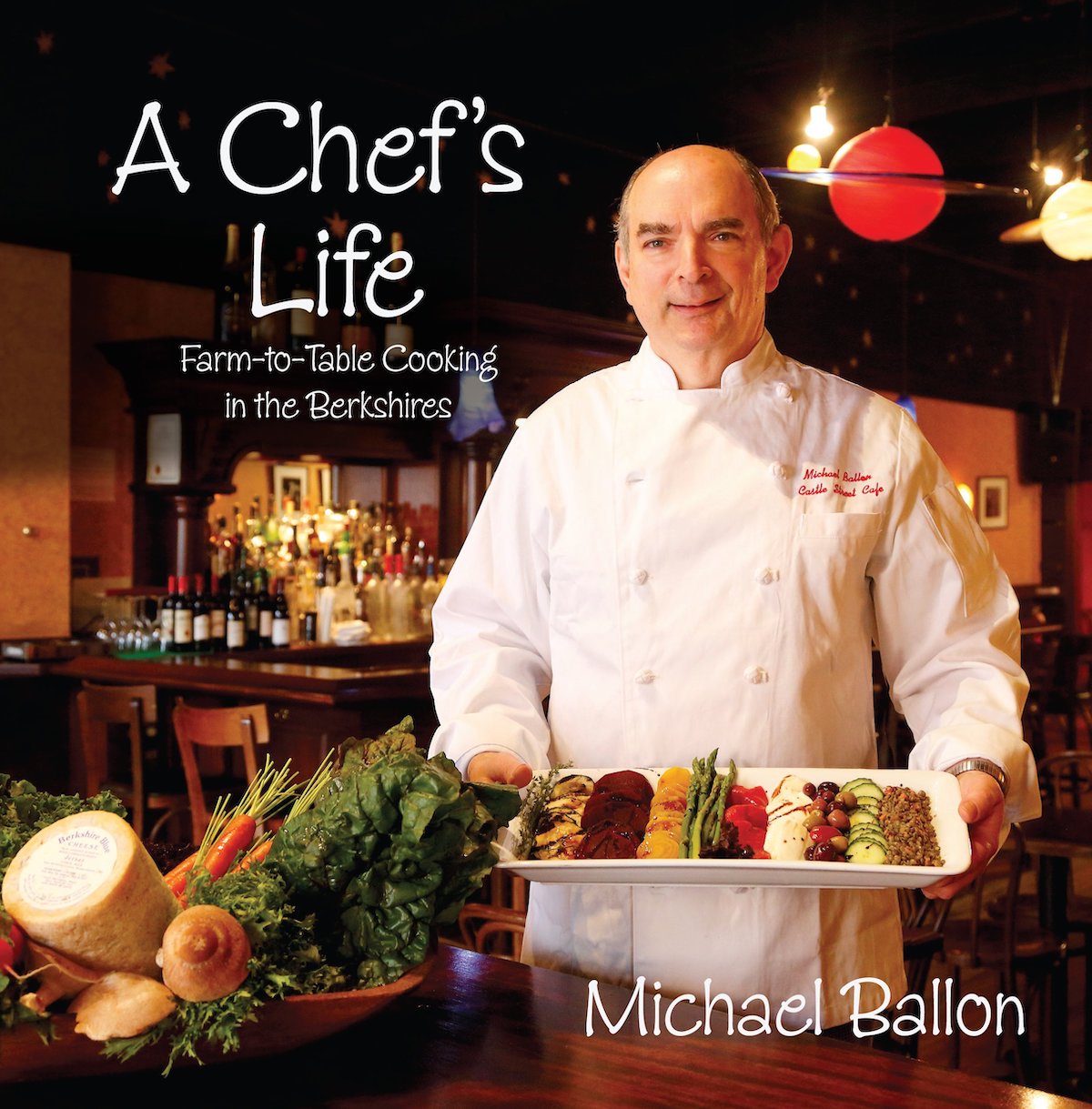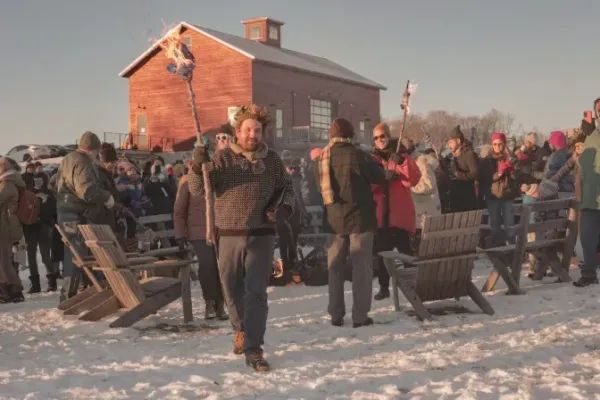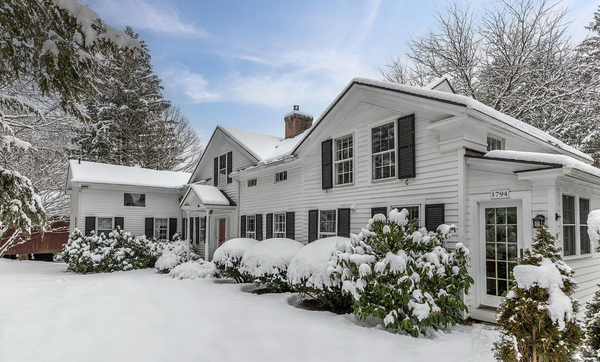In Memoriam: Chef Michael Ballon
August 8, 1956 - September 26, 2019

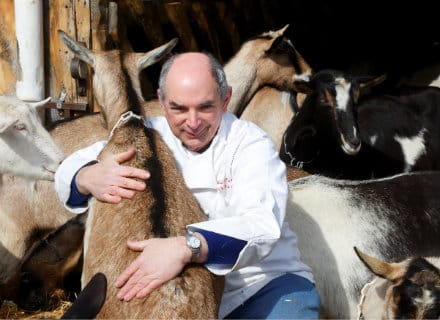
We were saddened to hear about the passing of Chef Michael Ballon, former chef/proprietor of the Castle Street Café. He died peacefully at home on September 26 of ALS (Lou Gehrig’s disease) and cancer. Chef Ballon was extremely influential in bringing the farm-to-table culture to the Berkshires more than a quarter century ago. Rural Intelligence was fortunate to interview him in 2014 at the launch of his book, "A Chef's Life." We are re-running that story; you can read his full obituary at The Berkshire Edge.
When Chef Michael Ballon, a regional pioneer of the farm-to-table movement, first opened the Castle Street Café in Great Barrington 25 years ago, he had to import goat cheese from California. But he soon learned that excellent versions of it were being produced in our area and, over the years, the creamy, tangy cheese has appeared prominently on Castle Street’s menu. It’s kind of him to keep it there; in his new memoir, "A Chef’s Life: Farm-to Table Cooking in the Berkshires," he admits he pretty much can’t stand the stuff. But, Ballon says, “I wouldn’t deprive my diners of the opportunity to eat it, and I recognize that many others enjoy it. It’s all in a chef’s work."
Ballon, one of the Berkshires’ most beloved chefs and the author of "The Castle Street Café Cookbook," published in 2010, is commemorating his quarter-century of pleasing palates with the new book, a series of essays (many with his favorite recipes) about being a chef, food trends, running a restaurant, and profiles of the farmers who have supplied the restaurant with food over all these years. Filled with confessions (see: goat cheese, above), memories (pianist Emanual Ax practicing at the café’s piano as astonished diners ate their meals) and quiet criticism of certain food trends (“Run fast when you see the word deconstruction applied to food"), "A Chef’s Life" lets us in on the why’s and wherefore’s behind his menus and management. As the book’s subtitle suggests, there is his take on the locavore revolution, which, for him, developed in part simply by virtue of being a chef in the country.
“You get to know the farms here," he says. “We’re just buying from local farms and purveyors to provide ingredients that make great food." The restaurant's first menu, from the spring of 1989, is reproduced in the book. One side listed the items, the other listed the local suppliers — pretty rad back then. (The menu has entertainment value just from the prices alone; remember when an espresso cost $1.50?)
Aside from enjoying the contact with farmers, Ballon clearly cares about his customers, even going as far as calling a loyal customer in concern when he didn’t show up on his regular night. “I always wanted to make Castle Street an accessible, affordable place that people feel comfortable in. Restaurants have an obligation to give back to the community."
Twenty-five years is a good run for any business, but for a restaurant, it’s particularly impressive. “Eighty percent of all restaurants fail within five years," Ballon says. “This has proved to be a fertile place for chefs to ply their wares."
